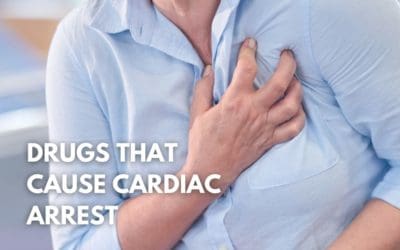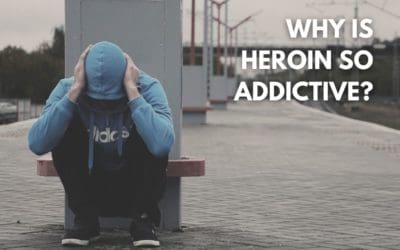It’s not always easy to recognize a heroin addiction in a loved one. However, learning about the common ways people on heroin act can help you identify early signs of heroin abuse. Read on to learn some of the most common symptoms and behaviors to look out for.
How Do People Act on Heroin?
As you may have noticed, people who use heroin often act unusually. Heroin is a highly addictive drug that causes many adverse effects on the body. People using heroin often experience difficulty walking, trouble speaking typically, and their pupils become pinpointed.
The way people on heroin act can be very different, mainly because the drug affects everyone differently. Yet, some heroin effects are common among most people using heroin.
They Change Their Sleep Patterns
You may notice changes in their sleeping patterns. They may be sleeping a lot or little, sleeping at unusual times and places, or complaining of trouble sleeping.
They’ll Withdraw From Their Social Circle
One of the most important things to understand about people who use heroin is that they’re likely to withdraw from their social circle. Before using heroin, these individuals might have been outgoing and full of energy, but after just one dose of heroin, it’s not uncommon for them to become antisocial—they may not want to be around others who don’t use drugs and may feel embarrassed about their drug use.
They May Not Take Care of Themselves
You may notice that they’re not taking care of themselves. This can include:
- Unhygienic behavior, such as picking at scabs or not showering.
- Poor nutrition includes eating very little food, eating only sugary foods or high-calorie foods, and stealing food from others.
- Poor sleep habits, including staying up all night and sleeping during the day, so they have more time to use (sleep deprivation), or sleeping all day but waking up in the middle of the night and unable to fall back asleep again for hours (re-awakening).
- Lack of exercise-related activities due to being too tired after using heroin; feeling too ill to do anything but lie in bed awake; inability to afford gym membership fees when money is tight.
They Might Show Signs of Anxiety or Depression
The drug itself is likely to play a role in how much anxiety and depression they experience. While heroin has the potential to make them feel relaxed, it can also cause severe physical dependence that leads to withdrawal symptoms.
When someone stops using heroin after becoming addicted, they may experience intense cravings and even physical pain if they cannot get more of the drug. This often leads people on heroin to continue using the drug even though doing so may not make them feel good anymore.
Depression and anxiety might also make it harder for them to stop using drugs because they could interfere with their ability to focus on treatment goals or seek help. In the short-term, heroin might help mitigate these symptoms, turning into a vicious cycle.
They May Have Chronic Health Issues
It’s relatively common for people who use heroin to complain about health issues. Eventually, heroin abusers will deal with chronic health issues that hinder their overall well-being. The most common health issues linked with heroin abuse include:
- Constipation
- Heart problems
- Liver problems
- Lung problems
- Bloodborne diseases, including hepatitis and HIV/AIDS (if you’re sharing needles)
- Infections, like abscesses and skin infections.
- Organ damage due to needle use. Needle injection sites may become infected with bacteria that are dangerous for your health, resulting in organ failure or even coma or death.
Their Behavior Can Change Quickly
It’s important to understand how someone on heroin may act. They may be irritable and angry or moody and hostile. Sometimes they might even seem paranoid or suspicious of others.
This is because when the person is using heroin, it can cause them to feel anxious and stressed out.
They may also become more withdrawn during this time because they are preoccupied with their use of the drug rather than being present at the moment with you.
Finding Help for a Loved One
If you know someone using heroin, it’s essential to recognize the signs of heroin use and get help for them. It may be difficult for you to confront your loved one about their problem with heroin, but remember that the only way they can get clean is if they’re ready to do so. Here are some common signs that a person may be using heroin:
- A lack of motivation or physical activity
- A lack of interest in things they used to enjoy doing
- Mood swings between depression and euphoria (this symptom also occurs with other forms of substance abuse)
If you recognize any of these symptoms in a loved one, consider speaking with an addiction specialist to set up an intervention to help them get the treatment they need to recover.
Sources:
https://nida.nih.gov/publications/drugfacts/heroin
https://www.drugabuse.gov/publications/drugfacts/heroin
https://report.nih.gov/nihfactsheets/viewfactsheet.aspx?csid=123

































